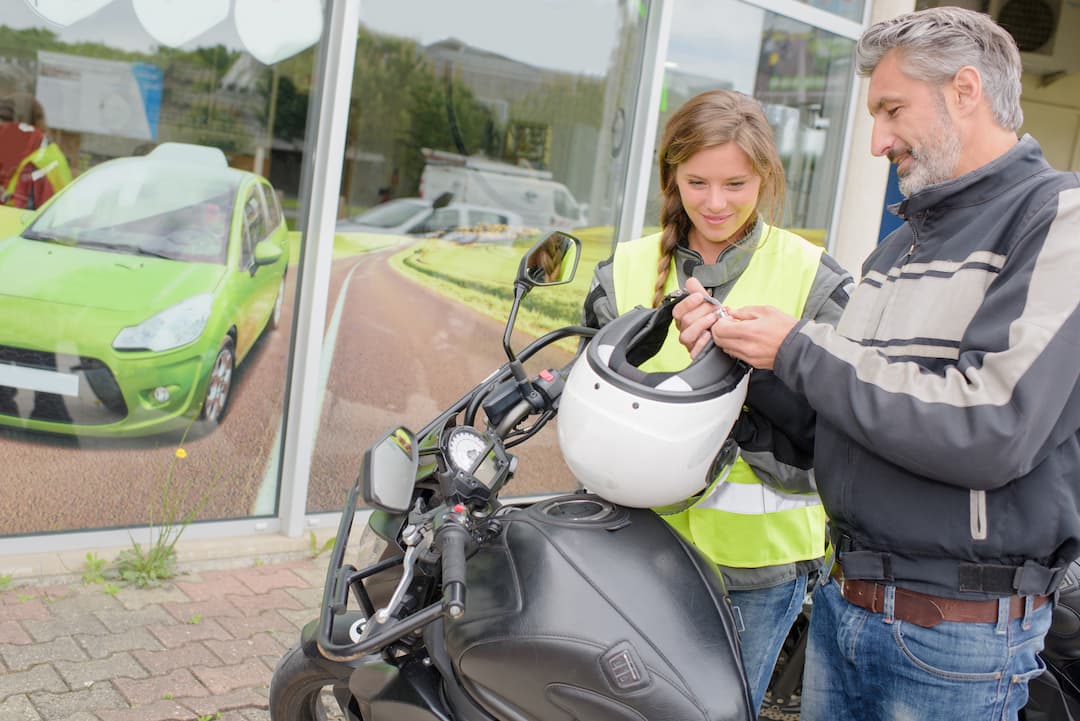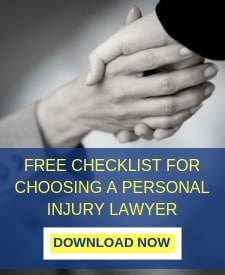Introduction
Florida, with its scenic routes and warm climate, is a haven for motorcyclists. Events like Daytona Bike Week further amplify the allure. Unlike many states, Florida’s motorcycle insurance laws are unique, making it vital for both resident and visiting motorcyclists to understand the nuances of motorcycle insurance law in Florida to ensure legal compliance and financial protection.
Key Takeaways
- Despite Florida’s no-fault insurance system, motorcyclists are not bound by these regulations, making insurance non-mandatory.
- However, having liability insurance is prudent to cover potential accident-related costs.
- Helmet usage depends on the rider’s age and insurance coverage, adding another layer to the insurance equation.
Understanding No-Fault Insurance in Florida: A Look into Motorcycle Insurance Law
In Florida, a no-fault insurance system is in place to ensure that in the event of an accident, individuals can turn to their own insurance policies for compensation, regardless of who is at fault. However, this system predominantly covers four-wheeled vehicles, leaving motorcyclists outside its purview under the motorcycle insurance law in Florida. Unlike car drivers, motorcyclists are not required to carry personal injury protection insurance. This exemption implies that motorcyclists may have to seek compensation from at-fault parties in case of an accident, a process that often requires legal intervention.
Comparison Table: Insurance Requirements for Motorcyclists vs Car Drivers in Florida
| Requirement | Motorcyclists in Florida | Car Drivers in Florida |
|---|---|---|
| No-Fault Insurance | Not Required | Required |
| Liability Insurance | Advised | Required |
| Personal Injury Protection (PIP) | Not Required | Required |
Why Liability Insurance is Crucial in Adhering to Motorcycle Insurance Law in Florida
Despite the non-mandatory insurance rule under motorcycle insurance law in Florida, carrying liability insurance is highly advisable for motorcyclists in Florida. Liability insurance covers the costs associated with bodily injuries or property damage caused to others in an accident. Without this insurance, motorcyclists found at fault in an accident may face hefty out-of-pocket expenses, which can lead to financial ruin. Moreover, having liability insurance can also provide a legal defense in case of a lawsuit, making it a crucial asset for motorcyclists. Learn more about the insurance considerations from Facts About Insurance Every Motorcyclist Should Know.
Helmet Laws in Florida: An Additional Layer of Safety and Its Impact on Motorcycle Insurance Law
Helmet laws in Florida require riders under 21 to wear helmets while riding. Additionally, riders of any age must wear helmets unless they have a minimum of $10,000 in medical benefits for injuries sustained in a motorcycle accident. This legislation intertwines insurance coverage with safety regulations under the motorcycle insurance law in Florida, encouraging riders to either carry adequate insurance or protect themselves with a helmet, thus promoting overall road safety.
Helmet Laws and Insurance Coverage Table
| Age Group | Helmet Requirement | Insurance Coverage Requirement |
|---|---|---|
| Under 21 | Required | None Specified |
| 21 and over | Optional | Minimum of $10,000 in medical benefits |
Licensing Requirements for Motorcyclists: Navigating Through Motorcycle Insurance Law in Florida
To legally operate a motorcycle in Florida, riders must either obtain a motorcycle endorsement on their current driver’s license or a motorcycle-only license. The process, influenced by motorcycle insurance law in Florida, involves completing a Basic Rider Course (BRC) from an authorized provider, which educates riders on safe motorcycle operation and prepares them for the licensing exam. Learn more about Helmet Exemption – Florida Highway Safety and Motor Vehicles.
Licensing Requirements Table
| Requirement | Details |
|---|---|
| Age | 16 years old minimum |
| Training | Basic Rider Course (BRC) |
| Learner’s License | Required for under 18, held for at least 1 year with no traffic convictions |
Age and Training Prerequisites for New Riders
New riders must be at least 16 years old to apply for a motorcycle license or endorsement, and those under 18 must hold a learner’s license for at least one year with no traffic convictions. The Basic Rider Course is mandatory for all new riders, providing essential training on motorcycle handling, safety practices, and Florida’s motorcycle laws, including motorcycle insurance law in Florida.
Road Safety Measures for Motorcyclists: A Complement to Motorcycle Insurance Law in Florida
Florida’s road safety measures for motorcyclists include regulations on lane splitting, lane sharing, and handlebar height. While lane splitting is not legal, motorcyclists can share a lane or “lane filter” under certain conditions. Adherence to these rules helps maintain orderly traffic flow and reduces the risk of accidents. For more insights on uninsured motorist rates, visit Uninsured Motorist Rate – Florida Department of Highway Safety and Motor Vehicles.
Tips for Adhering to Safety Measures and Motorcycle Insurance Law in Florida
To ensure a safe riding experience, motorcyclists should:
- Abide by all traffic laws and motorcycle-specific regulations.
- Attend advanced rider courses to hone their skills.
- Equip their motorcycles with reflective materials to increase visibility.
- Avoid aggressive driving and remain vigilant of other road users.
Legal Support for Motorcyclists: Navigating Motorcycle Insurance Law in Florida
Legal support is often indispensable for motorcyclists, especially in the aftermath of an accident. A competent Motorcycle Accident Lawyer can help navigate the complex legal landscape of motorcycle insurance law in Florida, ensuring that riders receive fair compensation for their injuries and damages. Furthermore, legal support can provide guidance on insurance claims, dealing with law enforcement, and understanding riders’ rights and responsibilities on the road.
Frequently Asked Questions
What are the motorcycle insurance requirements in Florida?
Understanding the motorcycle insurance requirements in Florida is crucial for both resident and visiting riders. Explore the nuances of Florida’s unique no-fault insurance system and how it impacts motorcyclists.
Why is liability insurance important for motorcyclists in Florida?
Delve into the importance of liability insurance in providing financial protection and legal defense for motorcyclists, especially in a state where insurance is not mandatory for two-wheeled vehicles.
How do helmet laws and insurance coverage correlate in Florida?
Discover how Florida’s helmet laws intertwine with insurance coverage, and how adhering to these laws can impact your safety and financial liability on the road.
What are the licensing and training prerequisites for new motorcyclists in Florida?
Learn about the essential steps and requirements for new riders to obtain a motorcycle license or endorsement in Florida, and how training programs contribute to road safety.





